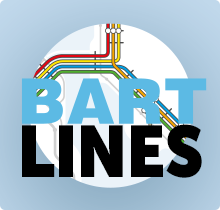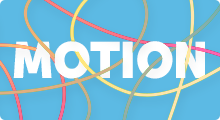My father died of heart failure the same Chinese New Year girls began to draw my eye over my ire. I wasn't present for his death but figured us square since he wasn't present for my life. Though ... [+]
For Maya, casual carpooling was the fastest way to get from home to work. It was also the cheapest; she kept two dollars in her pocket in case the driver asked for a contribution, but usually they didn't. Custom dictated that conversation could only be initiated by the driver, so often they passed the whole trip in silence, which she liked.
One driver, though, always introduced himself (Edgar) and made friendly talk when his riders seemed receptive. After landing in his car twice, Maya began to hope it would happen again. She enjoyed his conversation, plus he was about her age and she found him attractive. Once, she even feigned a phone call and waved other riders into a car because she spotted Edgar two cars back. When she got in, he smiled broadly. The rider in the backseat was immersed in her phone and AirPods, so Maya and Edgar talked. She worked in marketing, he in commercial real estate. They both liked movies, hiking, and music. By the time he dropped her off, they were talking like old friends.
The next day, Maya was still a block from the pickup spot when Edgar pulled to the curb and leaned across the seat.
"Care for a ride?" he asked in a funny voice, and she laughed and got in beside him.
After that, she waited at that spot, or found him waiting there for her. They rode into work together every day for a week, picking up nameless strangers to qualify for the carpool lane. They talked of the news, the global pandemic that was beginning to affect the San Francisco Bay Area. "I heard we might actually go into lockdown," said Maya.
Edgar said, "I heard that, too. Crazy." They both reflected for a moment about how they'd miss seeing each other every day. Both hoped the other would suggest that they exchange last names and contact information, but in the end, feeling awkward, neither did.
And then the world turned upside down. The lockdown came, and nonessential workers like Maya and Edgar were asked to work from home. For Maya, the world felt flatter and less interesting. Her work was easy to do from home, in fact even easier without the constant distractions of a busy office. In the late afternoon, the day's projects complete, she took to walking around her neighborhood, always with an eye out for Edgar, who she thought probably lived nearby. New routines took hold and she found she enjoyed the focused way of working, but she looked forward to commuting again so she could see Edgar.
Time passed, and Maya's company began bringing masked workers back to the office, in smaller numbers and with newly sanitized and distanced workspaces. Maya was asked to return to the office two days a week, on a strict schedule. The morning of her first commute, she put on eye makeup for the first time in a while and wore her favorite work outfit, adding a well-fitting black face mask with her company logo.
She paused for a minute at the corner where Edgar used to pick her up, but there weren't many cars on the street, and Edgar's wasn't among them. Slowly, she walked down to the casual carpool line, where only three other riders waited for drivers. After a few minutes, a car came and picked up the first two riders. They waited a few more minutes for another car to arrive. Maya rode to work in a stranger's backseat, feeling deflated.
The next day, the second of Maya's two days a week in the office, the same process repeated itself. Edgar was nowhere to be seen, and the casual carpool was desultory and nothing like the lively community it had previously been. The following week was the same. Before the pandemic, Maya had typically waited for only a couple minutes for a ride. Now she waited longer. She looked for Edgar, but in vain.
The second day of her second week, she and a few other riders waited for twenty minutes with no drivers, and finally one of them said, "That's it. I'm taking BART." After a moment of hesitation, Maya and the rest of the group followed them to the BART station, and rode to work under the Bay that day, instead of above it.
After that, Maya walked right past the carpool pickup spot unless there was a car already waiting for a rider, and became a regular two-day-a-week commuter on BART. The trains were sparsely occupied because of the pandemic, and she found the shifting of the car on the tracks soothing as she sat quietly and amused herself with her phone or a paperback. Almost everyone wore masks and sat as far apart as they could, which added to her sense of quiet.
She felt sad about Edgar. Some jobs had evaporated during the pandemic. Had Edgar's? Some people had moved away—left the Bay Area entirely. Had Edgar? Some people—even young people—had gotten sick with Covid and some had even died. Her heart wrenched when she thought of that possibility. She longed to see him again, and scanned every crowd for his face. She thought she glimpsed him once at a distance; her heart leaped for a moment, but the man turned and she knew it wasn't Edgar. She knew the name of the company where he worked, and twice, on her lunch hour, she walked over there and slowly strolled the block, feeling foolish but unable to let go of the chance to run into him.
Weeks passed. Maya found herself less interested in her job than she had been, sadder about the world, and more concerned about her own safety. When her boss told her that she'd need to come to the office more often, and with larger numbers of coworkers, she applied for a similar job with a smaller company in the East Bay. She was surprised and flattered when they were eager to hire her, and gave her more money and more authority than she had in her current job. And she'd still be able to take BART to work, just in the other direction.
Suddenly it was Maya's last day with the old job. In the morning, she stared out the train windows and pondered whether she'd miss the westward motion, the underground tunnels leading to the raised tracks in Oakland, the rhythmic and purposeful progress through the tunnel under the Bay, the big-city energy of San Francisco, and she felt a little sad. Also, she knew the new job might reduce the possibility of ever meeting up with Edgar again. Out of habit, her eyes scanned the crowds, but she didn't have much expectation that she'd see him, and she didn't.
Her ride home that night would be the end of her old routine. She took out her phone as soon as she sat down. When someone took a seat opposite her, she glanced up and into the eyes of the masked young man. It took her a moment to realize. Edgar! She could see the smile behind his mask, and she knew he could see hers. He told her he had been hoping to see her, and had been keeping an eye out for her. He told her a story about the demise of his car and how long he had waited for a new one. And he said, "I don't want to lose track of you again. Would you be interested in doing something over the weekend?" And then he asked for her phone and put his number in. And she texted back so he'd have hers. And they talked and talked, as comfortable as they always had been. They walked away from the station and toward home. And somehow they both knew they were moving toward what they both wanted.



